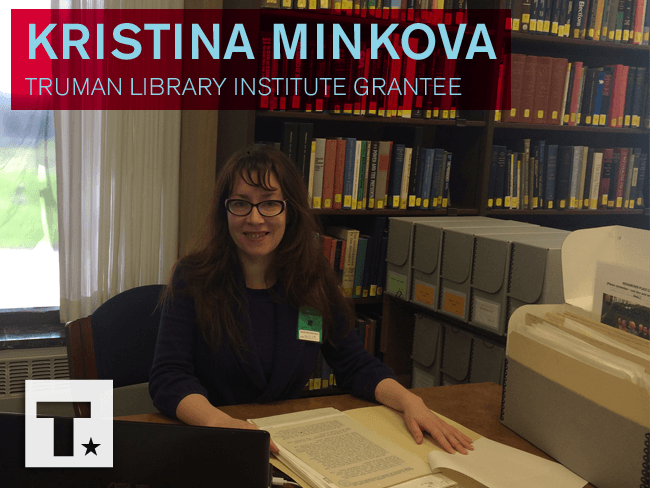Election Eve 1948 | October 31, 2018
On November 1, 1948, Harry Truman was home in Independence, awaiting the presidential election the following day after the exhaustion of his Whistle Stop campaign. He addressed the people one more time, this time in his hometown, in the speech below:
Independence, Mo.
November 1, 1948, Election Eve
I want to thank Senator Barkley for his generous introduction, and to say what I have said before — that no candidate for President ever had a finer running mate. The people of this country are everlastingly in his debt for his leadership in their interest. Senator Barkley will go down in history as one of our greatest public servants.
During the past two months the Senator and I have been going up and down the country, telling the people what the Democratic Party stands for in government. I have talked in great cities, in State capitals, in county seats, in crossroad villages and country towns. Read More
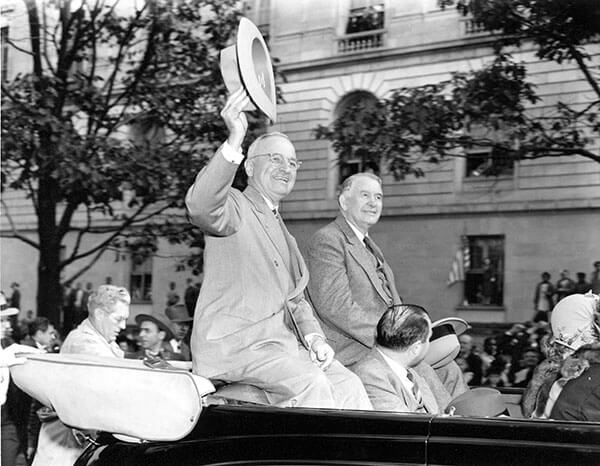
The Trip of a Lifetime | October 16, 2018
Truman fan’s greatest wish comes true
John Nappi was 14 when Harry Truman became president in 1945. From that moment until Mr. Nappi’s passing late last year, Truman was not just his favorite president but his hero.
“Harry represents everything my dad values about this country and the American Dream,” said Debbie Mayo, Nappi’s daughter. “Harry grew up in a working class family – like my dad, was an avid reader – like my dad, and stood by his convictions, even if they were unpopular – like my dad. Harry was the classic underdog who worked hard, had grit and determination and never gave up.” Read More
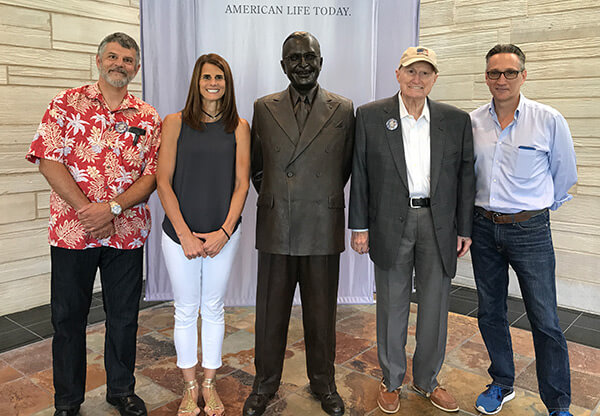
19th Annual Wild About Harry | September 17, 2018
An Evening With David McCullough
More than 850 passionate Harry Truman fans packed into the Muehlebach Hotel on April 19, 2018, for the 19th annual Wild About Harry, featuring honored guest David McCullough. The Pulitzer Prize-winning author of the definitive biography Truman was honored that evening with the Harry S. Truman Legacy of Leadership Award then gave the following remarks. We are honored to share an excerpt from his speech:
Good evening and thank you very, very much. I feel back home again. I feel the feeling that I have in general that we are a good people, we are a good country, we are good citizens, we care about the future, and we care about the past. And to have so much of that feeling, a projection of that attitude all in one room is heartening in the extreme. And what a proud moment to have an award presented by Harry Truman’s grandson. Read More
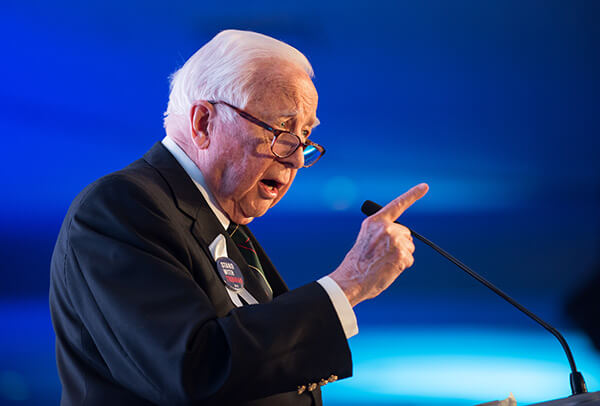
The Many Miracles of 1948 | August 28, 2018
70 Years Later, a look back at this history-jammed 12 months
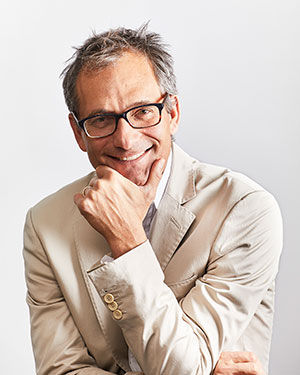
The following piece was contributed by A.J. Baime, author of The Accidental President: Harry S. Truman and the Four Months that Changed the World who is currently working on a book about the 1948 election. It originally appeared in the 1948 Commemorative Issue of TRU Magazine.
In the early evening of November 2, 1948, a secret service car pulled up behind Harry Truman’s home in Independence, Missouri, and scooped up the President of the United States. The car motored north out of town and over the Missouri River. It was Election Night, and Truman had just completed the most exhausting campaign of his life. In the quiet town of Excelsior Springs, he checked into a room alone at the Elms Hotel. Few outside of Mrs. Truman knew of his whereabouts. Read More
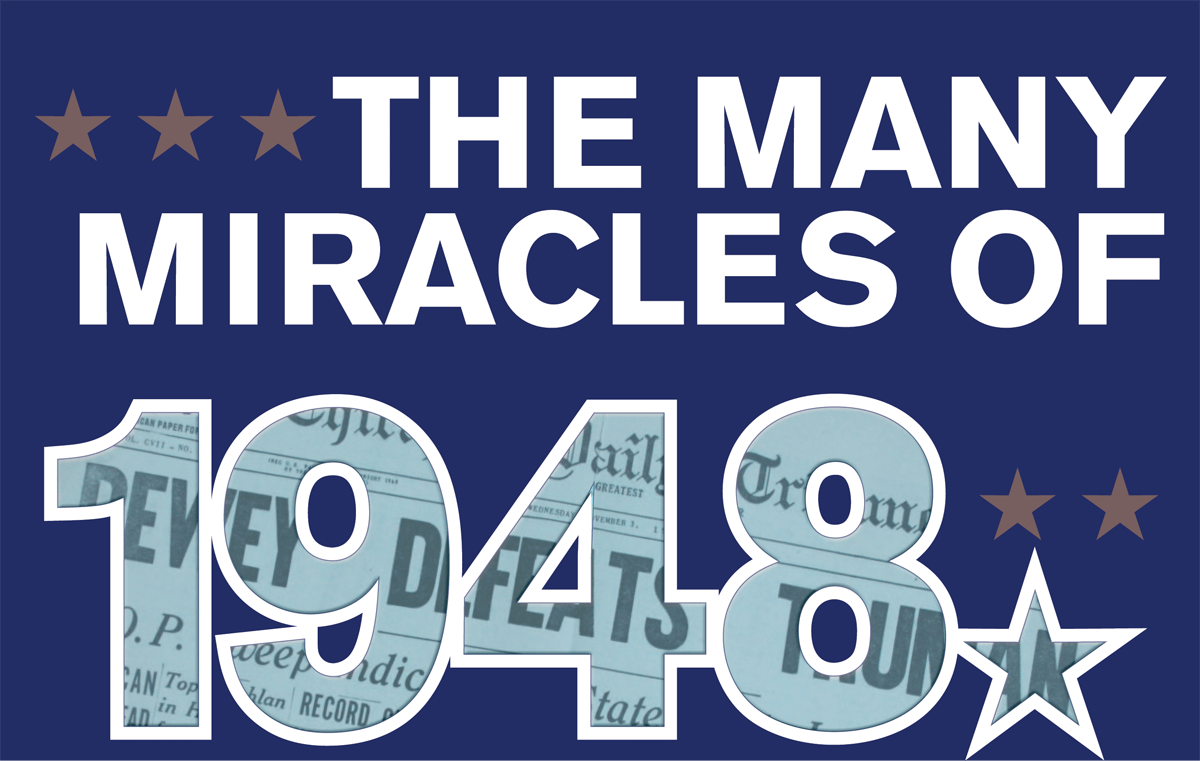
Truman in the News | August 27, 2018
From forming the United Nations to addressing conflict in Korea, from establishing NATO to handling the early days of the Cold War, the issues that Harry Truman faced and the unwavering leadership principles that guided him seem to become more and more relevant every day. National media has increasingly turned its attention to President Truman and his legacy to interpret today’s domestic and global news. Read More
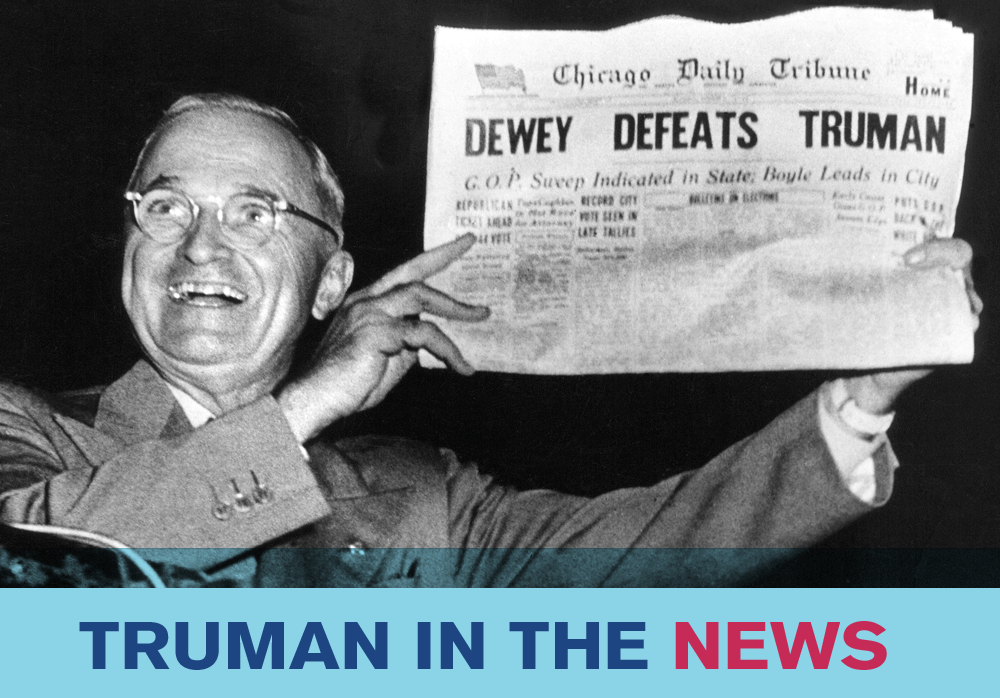
Dr. Kurt Graham at the AJC Global Forum | August 2, 2018
Dr. Kurt Graham, director of the Harry S. Truman Library and Museum, spoke at the AJC Global Forum earlier this summer in Jerusalem, memorializing President Truman, who the AJC called “a heroic friend of Israel.”
Watch his speech here, or read the entire transcript below:
In April of 1943, a little-known, Midwestern senator stood before a stadium rally in Chicago “to demand rescue of doomed Jews.” His address was a forceful call to establish the foundation of the post-war order, even as the world war raged on. “We must make sure that when final victory is achieved all men throughout the world will live in peace, free from all oppression.” Read More
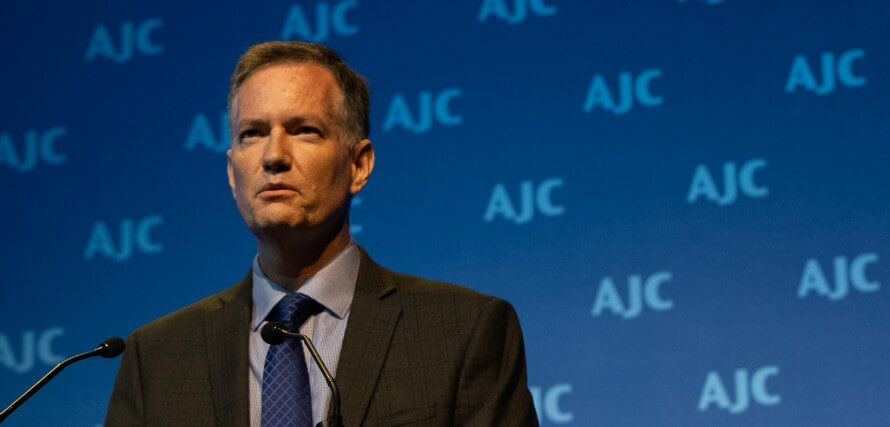
Meet Research Grant Recipient Melanie Sheehan | July 27, 2018
Each year some two dozen historians, writers and scholars receive Research Grants to explore the archives at the Harry S. Truman Library and Museum. These prestigious research grants are made possible thanks to the generosity of Truman Library Institute members and donors.
Donors have made it possible for the Truman Library Institute to give out nearly $2.7 million over the years for researchers all over the world to travel to Independence to immerse themselves in archival research and further our understanding of the Truman era.
Meet one of these grantees, Melanie Sheehan, who recently traveled to the Truman Library from the University of North Carolina – Chapel Hill to research for her project focused on business and labor organizations in the international economy during the Truman and Eisenhower administrations. We took a few minutes of Melanie’s time to learn about her research and what she learned while on site at the Truman Library. Read More
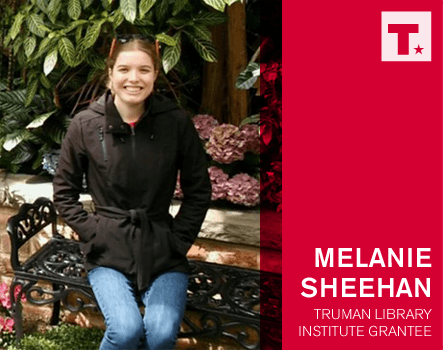
Meet Research Grant Recipient Armaghan Ziaee | July 18, 2018
Each year some two dozen historians, writers and scholars receive Research Grants to explore the archives at the Harry S. Truman Library and Museum. These prestigious research grants are made possible thanks to the generosity of Truman Library Institute members and donors.
Donors have made it possible for the Truman Library Institute to give out nearly $2.7 million over the years for researchers all over the world to travel to Independence to immerse themselves in archival research and further our understanding of the Truman era.
Meet one of these grantees, Armaghan Ziaee, who recently traveled to the Truman Library from the University of Cincinnati to research for her project focused on the Point Four Program in Iran. We took a few minutes of Armaghan’s time to learn about her research and what she learned while on site at the Truman Library.
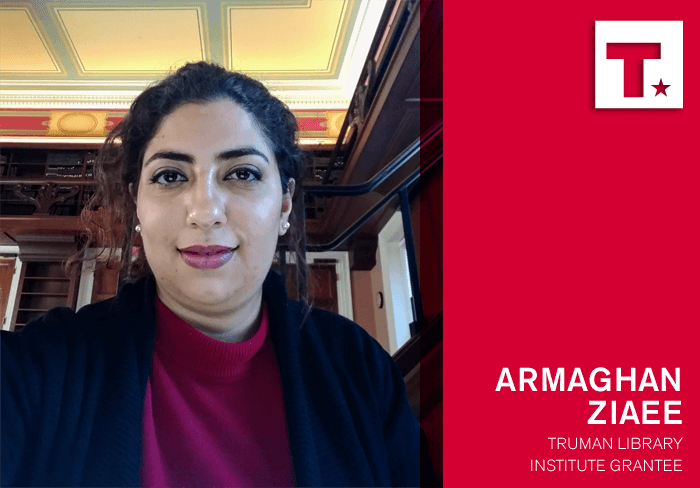
Finding Clarity in Chaos | June 29, 2018
Processing the National Korean War Museum Collection

Natalie Walker is Museum / Archives Technician at the Truman Library Institute and is currently finishing a Master’s in Public History at Colorado State University.
Natalie wrote the following blog post telling the behind-the-scenes story of processing a new collection of Korean War items acquired when the National Korean War Museum closed its doors.
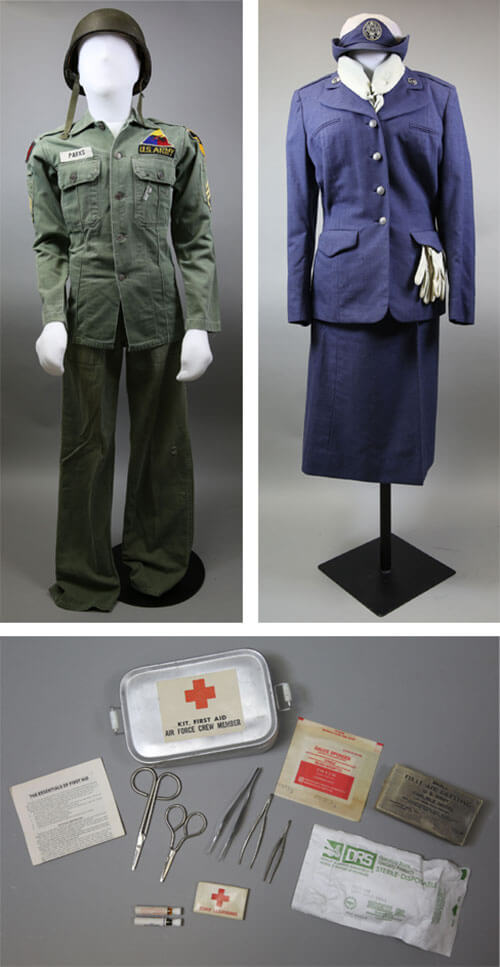
Meet Research Grant Recipient Kristina Minkova | June 18, 2018
Each year some two dozen historians, writers and scholars receive Research Grants to explore the archives at the Harry S. Truman Library and Museum. These prestigious research grants are made possible thanks to the generosity of Truman Library Institute members and donors.
Donors have made it possible for the Truman Library Institute to give out nearly $2.7 million over the years for researchers all over the world to travel to Independence to immerse themselves in archival research and further our understanding of the Truman era.
Meet one of these grantees, Kristina Minkova, who recently traveled to the Truman Library from St. Petersburg State University in Russia to study the origins of the Cold War from a political, military and economic standpoint. Read More
